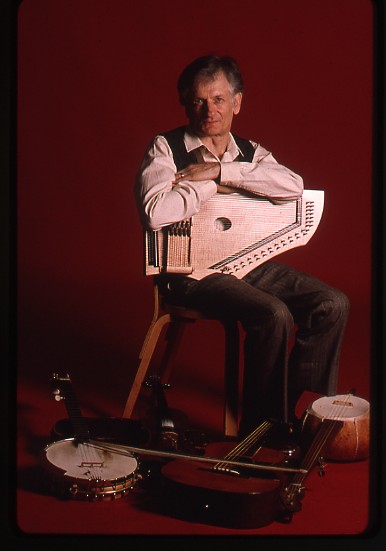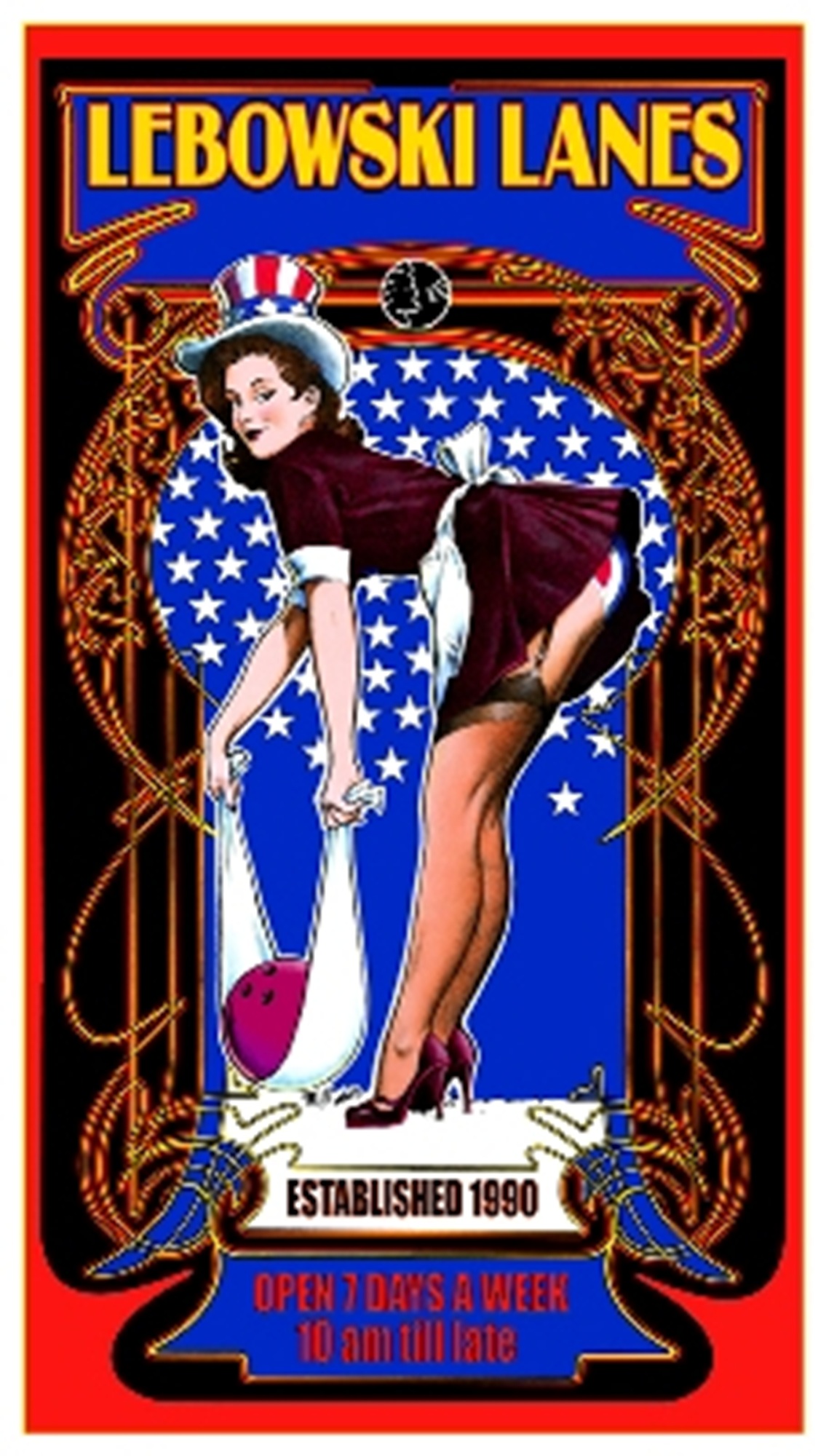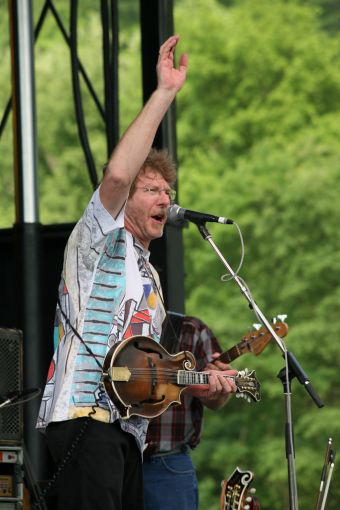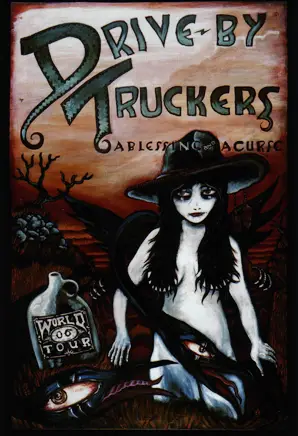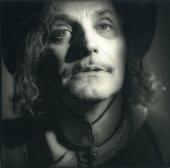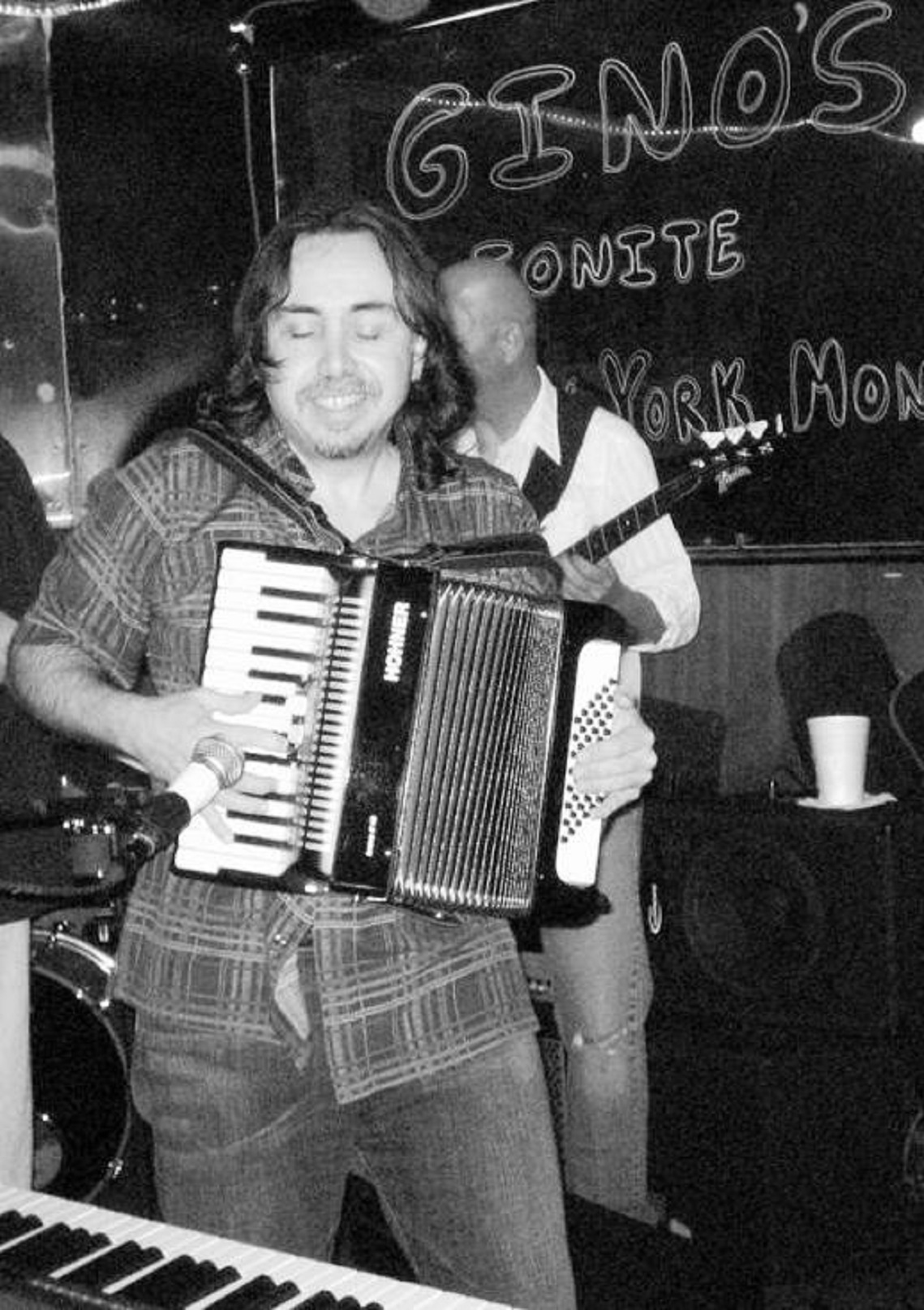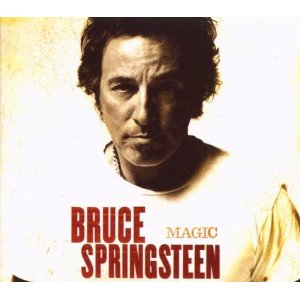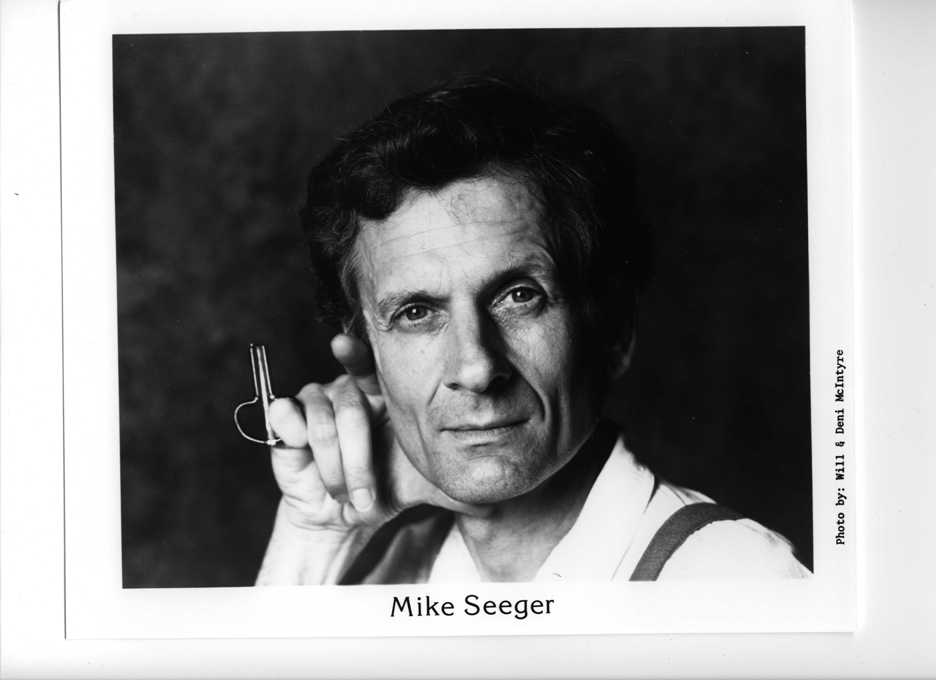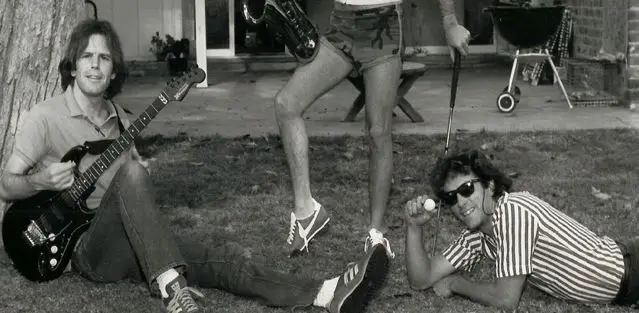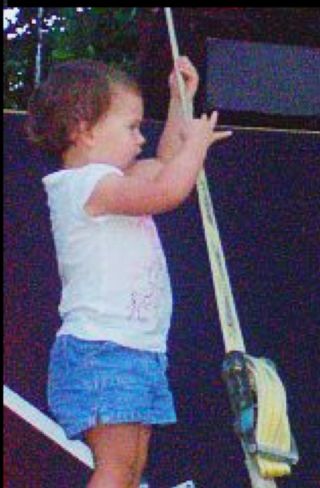My Grandmother, Edith Bissette, grew up in a musical family in rural Virginia and North Carolina in the 30s and 40s as the changes Mike Seeger describes were taking place. She expands on what Mike describes above as she tells us not only what the advent of radio was like in the rural South, but what life and music were like as well.
She and her brothers played the traditional music of the rural South. Her brothers played on the radio when radio was new. By the 60s, musicians like them, every day people playing in their homes and with friends would, in part through the efforts of Mike Seeger, began to influence the way all genres of American music sound today. We hear echoes of the music they played, the traditional music of the Southeast in today's most popular songs.
The advent and growth of recording, radio and the Internet, new frontiers, have always shaped, and continue to shape music as well. Mr. Seeger has recorded traditional American music for decades. His parents were among the first people to do so. He described the impact of technology on American music to me in our talk:
"The whole way that we deal with music now is very different than prior to 1925, when we started recoding in earnest. The first recording was in 1922. It took off in 1925, shortly after electricity made it possible to record a guitar. Before you couldn't, it was too quiet, too subtle.
"The whole idea of being able to hear somebody you never heard face to face was an amazing change. It sped up the development of American music. So did increasing urbanization, which was happening at the same time, the result of industrialization, which had also sped things up. It was a changing process.
"At first, radio was very much regional or local. The advent of the playing of recordings gradually changed that. This was during the 30's and into the 40's or so. At that time it began to expand, became less locally oriented. And it grew from there.
"Now the Internet is gradually broadening the whole thing, making it much more open to difference. Radio and recording changed the process of music into one that was commercial. In a way, the Internet is doing that a little by giving people who aren't necessarily pro's access to tools formerly only available to professionals. This makes the possibility of becoming a professional more or at least a professional as seen by Mr. Google, more available."
When I spoke with my Grandmother, to get the perspective of a performer growing up in a different time under different circumstances than Mr. Seeger, but who also witnessed and participated in the evoloution of traditional music, she said this:
"When they first came on scene it was in 30s during the Depression, 1929 or 31 or something", my Grandmother said, "my neighbors were the only people in the area who could afford one and everyone from miles around would go to their house every Saturday night to listen to it. Saturday night was only time you could get anything but news on it, and you usually got more static than anything else.
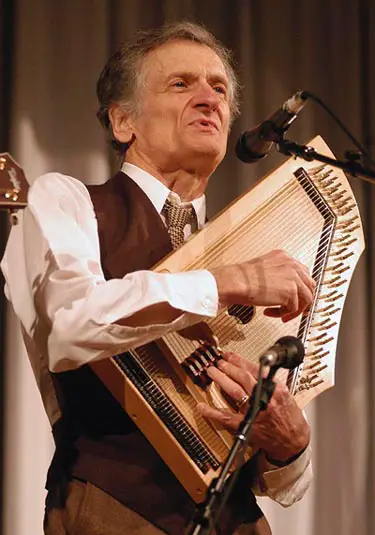 "Back then, radio was on only a short time in the morning and then in the evening. Maybe news came on at 12. There was only one station, it was local, then regional, eventually national. As technology progressed, people became more aware of what could be done with it. At first radio was just entertainment, then advertising found a place on it, now it's used for everything.
"Back then, radio was on only a short time in the morning and then in the evening. Maybe news came on at 12. There was only one station, it was local, then regional, eventually national. As technology progressed, people became more aware of what could be done with it. At first radio was just entertainment, then advertising found a place on it, now it's used for everything.
"A lot more people played music back then. My mother ordered an organ from Sears when she was first married and I loved to play when I was big enough for my feet to touch the pedals. By that time, my brothers had almost wrecked it.
"They used to run up and down the hall with it. I don't think it was very well constructed anyway, but they wrecked it. When I got older, I wanted a piano so badly I even promised my Daddy I'd never get married if he'd get me one. But it was the Depression, and we couldn't afford it. I learned to love music playing the organ.
"You wouldn't know it from that but my brothers were musically inclined too. A lot of people on my mothers' side were. We mostly learned from our uncle, who played guitar. He would drink and then come by the house. My mother didn't appreciate him coming by when he was drinking, but he would and he would bring his guitar and sit on the steps and play.
"I picked it up by ear. We all did. It takes more than learning from a book for anyone to be an accomplished musician of any magnitude I think it has to be somewhere in your genes. My mothers' younger sister played guitar when she was young.
"You have to just have it somewhere in your bones to want to pick up an instrument, especially without music. Religious songs were written down but we didn't play those. Song sheets were popular at the time but we didn't have them. We made them up. To do that, you have the something it takes or don't.
"People played all kinds of things back then, whatever they could make or afford; guitars, accordions, banjos, and zithers. The first instrument brother my brother had he made from gourd. It had 3 strings. He graduated to a cigar box, built a staff on the box. He went from there to being able to buy a cheap one guitar. Eventually he got a Gibson.
"My brothers started playing guitar with 2 other boys in a band called The Rambling Hustlers. They would play at parties. A friend got them on a Saturday broadcast from Rocky Mount. I practiced with them but didn't play on the program.
"I never even thought of a woman going with 4 men to play on a radio program somewhere at that time. My Mother wouldn't have let me. Things weren't nearly as open they are now. It would have given me a bad reputation to go. People were old fashioned in their thinking then. There was nothing modern in my day.
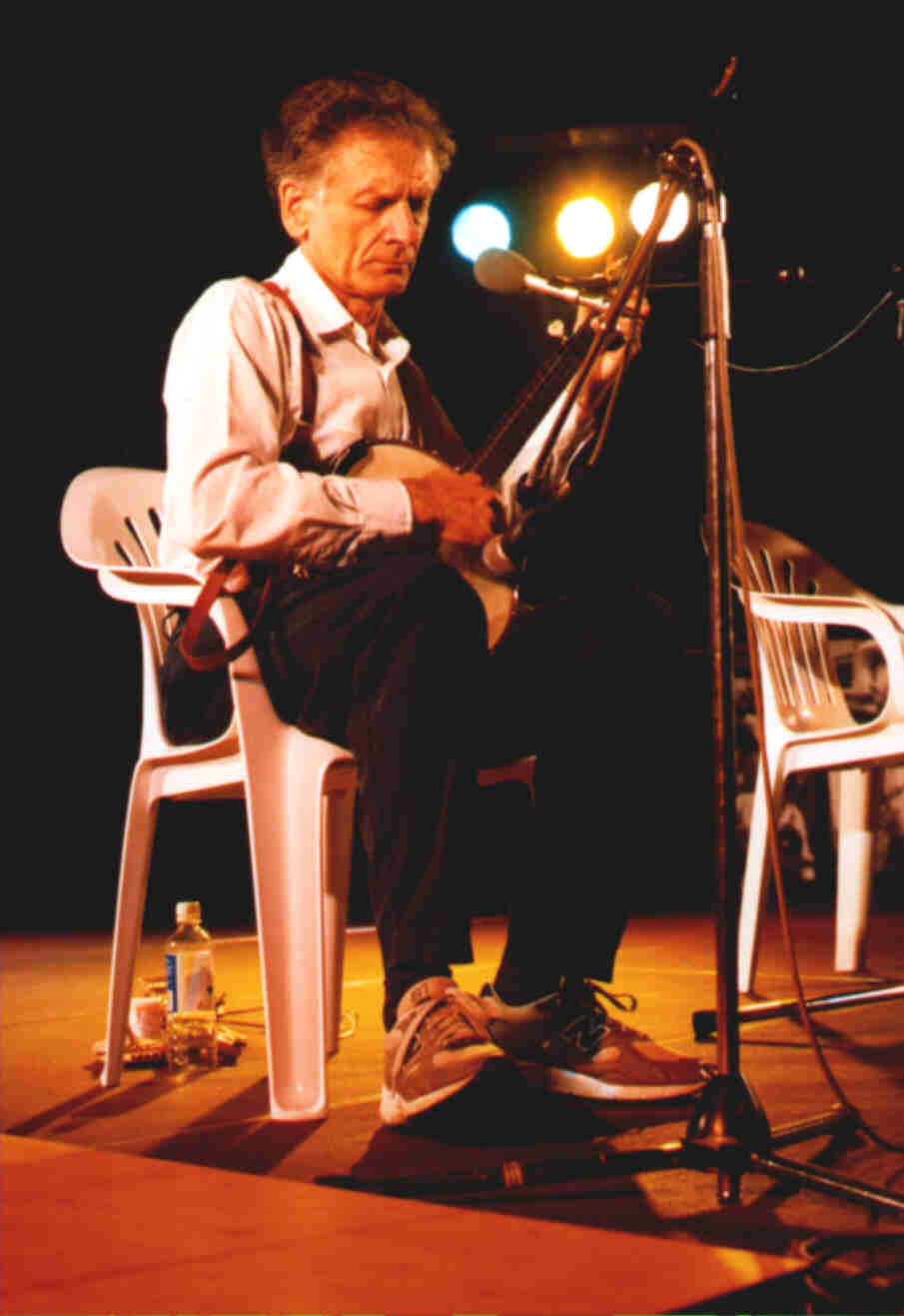 "Old Man Depression didn't start growing a full beard until 37 in the country where I was, we had an easier time than people in the city did I think. We could grow our own food. We did a lot to help each other, worked together as a community.
"Old Man Depression didn't start growing a full beard until 37 in the country where I was, we had an easier time than people in the city did I think. We could grow our own food. We did a lot to help each other, worked together as a community.
"We started coming out of it in the early 40s with World War II. People started thinking more about entertainment. By that time radio was national, and more people were able to buy them. Around that time, there was a barn dance in Richmond on Saturday nights called the Old Dominion Barn Dance.
"A woman named Sunshine Sue had a show there that was broadcast on the radio. She had the Carter sisters perform I think, I don't remember who but remember seeing them. Mother Maybelle was there every Saturday. I didn't go every Saturday but I went often.
"It seems Mother Maybelle and her daughters were living in Ashland at the time because of her husband. I remember a friend of mine pointing out their farm there. They may have went to Nashville and the Opry from there, and then June met Johnny Cash. I'm not sure of it though.
She didn't realize when she went to the Barn Dance to see Mother Maybelle play that she was watching someone who's guitar style, along with her families' music would influence the way not only Country music, but other American genres would be played from that time on, but she was. The Carters were, in a sense, our first Pop stars, touring and recording songs that remain popular today; "Keep on the Sunny Side", for example.
Not only the hundreds of songs recorded by the Carter family but many of the traditional songs my Grandmother remembers playing have remained popular. They're mostly known now as rock or pop songs, popularized by countless musicians, including Bob Dylan, The Grateful Dead, and Johnny Cash.
I didn't go into that with my Grandmother. I think she's happier not knowing. She'd balk at the very name of The Grateful Dead, I'm certain. But I was curious to know if she'd heard any of the songs I knew before they were recorded.
She could only remember one. She said there was a man who worked with her family on their farm. On his day off, he would walk to the nearest city.
She said he sang the same song each time he went off down the road. When I asked her what it was, she started to sing what you may recognize as a Grateful Dead song:
"Goin' down the road, feelin' bad.
Goin' down the road, feelin' bad.
Goin' down the road, feelin' bad, bad, bad.
Don't want to be treated this-a-way."
The hair on my arms stood up. I felt like he'd walked to the crossroads of past and future, and sang loud enough to be heard in the present. In a sense he had, via the True Vine. And so the voice of one man walking a hard and lonely road echoes through decades of popular music.
Via my Grandmother, we climbed a branch of the Vine through a window of the past and found ourselves carried upon its back into the present. Through my talk with Mr. Seeger, we found the Vine itself, past, present, and future. Now we will climb a branch of the present and perhaps peer into the future. Here we have another musician who emerged from deep-rooted Southern music traditions, Bo Bice. There is something of a prophet behind this "Idol". How is that? Well…
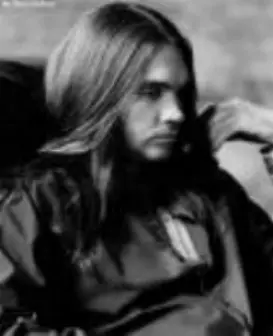 While Mr. Bice is a brightly burning star right now, charismatic, witty, talented, he'll be the first to tell you stars fall and wit does not wisdom prove. But there's more to him than that. He does not take himself too seriously, but he takes music seriously. More than just a good singer and performer, he has been a songwriter for years and plays not only guitar but also a bevy of other instruments including saxophone, piano and harmonica. Additionally, when he talks about himself and the world, he is insightful, at times profound.
While Mr. Bice is a brightly burning star right now, charismatic, witty, talented, he'll be the first to tell you stars fall and wit does not wisdom prove. But there's more to him than that. He does not take himself too seriously, but he takes music seriously. More than just a good singer and performer, he has been a songwriter for years and plays not only guitar but also a bevy of other instruments including saxophone, piano and harmonica. Additionally, when he talks about himself and the world, he is insightful, at times profound.
Bice was influenced by the same music Mike Seeger helped popularize and preserves, the music my Grandmother played. From Alabama, he absorbed the Gospel and Blues traditions there. His mother performed at the Opry and she and her sisters had a gospel group for some time. I found, through our conversation, that he is not only influenced by but reflects the spirit of the True Vine:
"We are such an instant gratification-oriented society, wanting everything now, everything bigger better, everything better, we grab the thing of the moment." Bo said, "Then we get mad because six months later we have to buy new one because the other has become obsolete. But music, Rock & Roll, transcends that, crosses boundaries we as human beings can't cross. It crosses segregation, hatred and sorrow. It can bring peace.
"Behind the instant gratification of the moment, of the new, bigger and better, there is something pure. One of the things that is so pure, about Rock, Blues & Gospel as well, is love; love of poverty, of innocence. Sometimes the music sings about the turmoil of life, sometimes the misery. But it, and life, is about finding love in everything you do. Something about the South, and the music that came from the South exudes that.
"I lived for a time in Muscle Shoals, Alabama, called the birthplace of the Blues because Chicago style Blues started there with W.C. Handy. On the back of one of my first CDs I had a picture of his monument in tribute to him. I also grew up around deep-rooted Gospel traditions. I've always been a writer and feel all of this helped form my songwriting, my music.
"I still pay homage to bands that came before because I'm proud to be part of Americas' rich musical heritage. I'm proud to be from the South, I think it's cool, in part because it is such a crucial part of that."
As Mike Seeger did, Bo described that he hadn't set out to make a living doing music, he just did what he loved and it was just possible for him to make a living at it:
"I'm not a reluctant celebrity, I'm not reluctant to live in this lifestyle, but I'm reluctant to use the word to define myself. I'm a musician. I've always loved music & everything about it. I've played for a long time and it's never seemed like work. It never does today.
"It can get hectic; sometimes I do three interviews a day, for example. I try to fit in a lot. I get tired but I never get tired of it because I love what I do so much. It's fun getting the chance to do this without feeling I've sold my proverbial Rock & Roll soul.
"Music, what I love, why I play it, is that it's about what life's about, being helpful to your surroundings, to your fellow man. That's what I want to bring everywhere. I'm not trying to change the world, but if you don't try to make a difference you're doing nothing and if you're doing nothing you're so far behind you don't even see yourself how miserable you are. So try to do something.
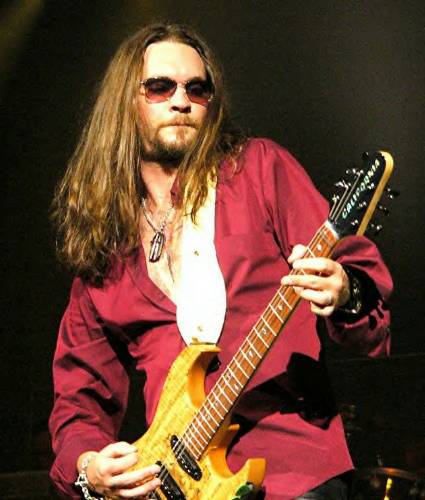 "Here's what I think is the worst thing, the one line you hear from every person that doesn't try, "no one else is doing it". Like the guy who didn't even register to vote then tells you his political stand on everything, how he'd clean up the world if he were only president but he doesn't even mow the lawn."
"Here's what I think is the worst thing, the one line you hear from every person that doesn't try, "no one else is doing it". Like the guy who didn't even register to vote then tells you his political stand on everything, how he'd clean up the world if he were only president but he doesn't even mow the lawn."
Bo is not that guy. I've no doubt he votes and he has been in the press lately for making a political statement in one of his songs. He's not trying to change the world, but it only takes one inspired person to change the world. Musicians are in a unique position to do this.
Is he one of those people? I don't know. But he doesn't take "no one else is doing it" as an excuse not to try anything he sets his mind to do. He has music in his bones, seems to have what it takes by my Grandmothers' wisely put criteria. This sets him apart.
By participating in the Save the Music Foundation, he helps make sure as many people as possible that have musical aptitude have a chance to realize it, along with contributing to other charitable causes:
"I see this as my opportunity to shine", he said. "While people do care what I say, do, think, I'm going to do my best to bring awareness. I can't just go down and build a house for Habitat for Humanity, or for people who's homes were destroyed in Katrina", (but he offered his home to victims of the hurricaine).
"I keep things on my radar and try to keep them on other peoples minds. It's not just New Orleans, it's Missouri, Alabama, it's Florida. It's a lot more than any of us fathom because there are always more problems. The shelf life of problem is about a week and if it's not on CNN we lose track."
Before our conversation ended, he told me a story, his own and quite powerful story of how his own world ended, and how he saved it:
"One of coolest parts of the way all this stuff happened for me is that it happened like this. I was playing the bar scene, scratching out a living, I had ups and downs, several bands; some guys stuck it out over years. I ran into the law, had bar fights. I dabbled in drugs. I was arrested twice.
"The first time it happened I was 21 or so and I thought, that's it. My life is over. But I got up, dusted off and kept on. I watched friends get lost. I didn't. I was lucky. I got in trouble early and was able to straighten out and focus.
"It happened sometime around the time I was 26. I was in a weird kind of spot. I had a run-in with the law again. Again, I thought my life was over, not because of that so much as what happened next.
"I came home from work one day soon after and thought my house had been burglarized. Almost everything was gone. All that was left was a futon, my music equipment and the television. Then I realized, wait, everything of my girlfriends is gone, all my stuff is here. She'd just left and taken everything with her.
"I remember it was the time when things started changing. I met my wife soon after that. I was managing a guitar store. I didn't feel good about the things I'd been doing so I just started living life differently, started treating people like I'd want to be treated.
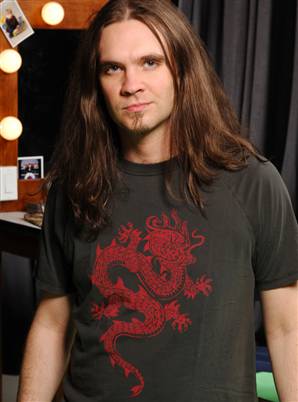 "And soon after, this commercial comes on for "American Idol". I know that, and the good things that preceded it and have come after, don't mean everything going to be great. It's actually harder when you try to live like that, by treating people right and doing what's right. People try to bring you down by truckloads.
"And soon after, this commercial comes on for "American Idol". I know that, and the good things that preceded it and have come after, don't mean everything going to be great. It's actually harder when you try to live like that, by treating people right and doing what's right. People try to bring you down by truckloads.
"But I learned that you have to roll with the punches. When you do that, sometimes you're going to get hit. You've just got to suck it up and take it. Pick yourself up. Dust yourself off and go on."
And where, I asked, does he think he'll go from here?
"I'm realistic." Bo said. "There are two ways the type of scenario I'm in usually plays out. The life expectancy of most bands is about three years, one hit wonders have been out there since the beginning of Pop. I might be one. I'll have enjoyed the ride and I'll keep on playing music wherever people want to hear my music, bars or clubs or wherever.
"Or, I might find a way to continue, to go on, conquer the world. It doesn't really matter to me because I'm doing what I love. Whatever turns and bends in the road are there are there because of the decisions I make and the guidance I try to follow. Where the road ends, I don't know but if it's good it's good and as for the bad, it's still good."
And so, in each of these stories, we find a man going down the road, feeling bad or feeling good, it's all the same because they're singing all the while. Their songs will continue to echo in the united voice of generations that is the music of the True Vine.





